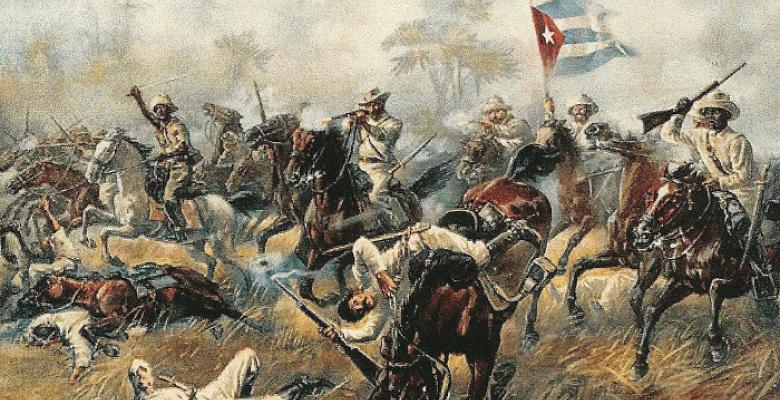Patriotism
especiales

Has our citizens' pride in being Cuban diminished? Someone suggests that we should revive patriotism in its entirety, as a sure resource for unity. If we review Cuba's history, the speeches, letters, and texts written by our heroes and our most important intellectuals, we will find a constant thread in them: concern, fear, and rejection of the progressive subordination of our homeland (of our national project) to the interests of the United States. I am speaking of a common thread in the configuration of the national spirit that runs through the 19th and 20th centuries. Whether or not it's called anti-imperialism, given that the term is more recent, this sentiment of prevention, and then frustration and rebellion, fuels the most genuine patriotic sentiments; on the contrary, excessive admiration, generally linked to class interests (our conspicuous importing bourgeoisie, which Che once called the "vice-bourgeoisie" because it was subordinated to the metropolis, which draws in a mass of insecure small owners and culturally colonized oppressed people eager to equal the oppressor), operated as a disintegrating force.
In his writings, José Martí set out to blur the mythical image of the Colossus of the North that beguiled his most naive contemporaries and to organize a short war of independence that would avoid intervention by the powerful neighbor. "Everything I have done until today and will do, is for that," he confessed in an unfinished letter to his friend Mercado, the day before he died in combat. The fall of Martí and then that of Maceo the following year made possible the much-feared US intervention, in what Lenin described as humanity's first imperialist war. The first half of the 20th century reflects this frustration of the national spirit.
It's true that the Cuban school of the neocolonial bourgeois republic trained patriots in the anti-imperialist legacy of Martí. The two poles of national history, one propitiating national unity, majority-based, but tied to the institutional networks of a dependent republic, and the other disintegrating it; the anti-imperialist and the foreign-oriented (pro-American), the one that maintains its faith in the people and the one that repudiates it, out of convenience, ignorance, or incapacity. In 1959, the anti-imperialist movement triumphed, enshrining national pride: "History, revolution, and nation in Cuba are the same thing," Cintio Vitier has said, "because it's not a revolution that occurred in a nation that already existed, as in European countries, but a nation that was created by a Revolution." This revolution began with absolute independence and social justice, opposed to Spanish colonialism, and refused to surrender to US neocolonial domination. Guillén's verse, transformed into a popular saying, captured the moment of consecration: "Martí promised it to you and Fidel kept it."
In Cuba, patriotism is either anti-imperialist or pure abstraction. It cannot be reduced to customs and traditions, ways of speaking or walking, musical or culinary tastes, past or present loves: all of this exists or can exist in traitors. It’s an anti-imperialist project of independence and justice. If the project is blurred, national pride is weakened. Appealing to a depoliticized patriotism as a resource for unity is a futile, disintegrating endeavor. The national unity forged by the triumphant Revolution is the result of an anti-capitalist national project. But it’s necessary to sustain the wall of solidarity of all Cubans who feel the redemptive fire of David in the face of Goliath's siege, wherever they live. There are many Davids. A cavalry of mambises launching themselves, machete in hand, to conquer the future.
Translated by Amilkal Labañino / CubaSi Translation Staff













Add new comment